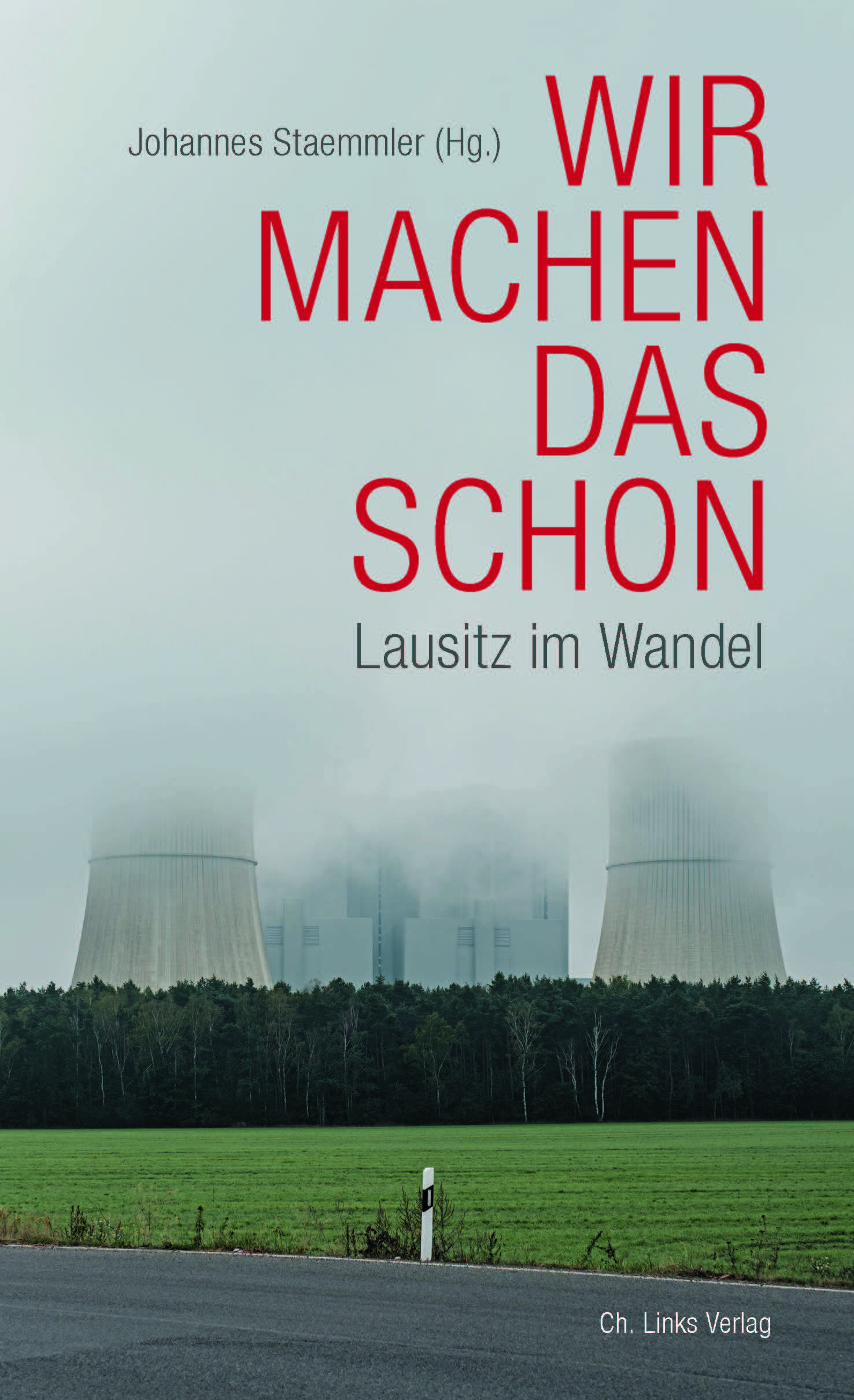structural development
We'll do it. Lusatia in transition
- structural development
- Hits: 2734

We'll do it. Lusatia in transition - a new book from Ch. Links Verlag
By Ariel Kohlschmidt
Transformation can be wanted from above, but it is always carried out on site and by individual people. This is also the case in Lusatia, where another far-reaching change is imminent with the phase-out of coal by 2038. Sacks of money are useless if you don't meet people who can think about and implement the transformation. "The great transformation begins with small things." This is how Dr. Johannes Staemmler very vividly.
He accompanies the first steps of structural change as head of the project "Social structural change and responsive policy advice in Lusatia" at the Potsdam Institute for Transformative Sustainability Research (IASS). His strategy is not only very likeable, but also very clever: From the beginning, research was not only carried out from the distant study room solely on the basis of quantitative surveys and statistics, but the team around Frauke Haupenthal threw itself into complex qualitative field work and in exchange with actors in the Lusatian events. Sounds logical? Yes, but is not always common.
It is just as unusual for the scientist to come snowing by on his bike in the middle of nowhere and invite you to join in, in order to then develop a book that is not full of numbers and bar charts and bone-dry texts, but instead has 15 protagonists telling stories and to have the courage that these stories speak to each other, contradict each other and thus completely new areas and facets of Lusatia become visible.
For example, sustainability researcher David Löw Beer talks to Silke Butzlaff, an open-cast mining excavator operator, while Franziska Schubert and Annett Jagiela write about their green political commitment in a region that doesn't make it easy. Newcomer Dagmar Schmidt reports on her experiences of bringing civil society actors together to form the »Citizens’ Region« platform. And I write about my Lusatian childhood in a new development area in Cottbus and how wild gardens in coal-mining villages that were being excavated awakened my love of the country, which brought me back to Lusatia and today plays a major role in our Oberlausitz Space Pioneer Station project.
An ending can always be a good beginning full of adventure, opportunity and freedom.
Want to know more?
Here is a detailed press release. There will be a virtual book talk on February 22, 2021 at 4 p.m.:
https://www.presseportal.de/pm/127338/4828191
There is a reading sample here:
https://www.iass-potsdam.de/de/blog/2021/02/die-grosse-transformation-beginnt-im-klein
About the author:
Arielle Kohlschmidt lives as a returnee from Lusatia in Klein Priebus in the district of Görlitz. Together with Jan Hufenbach, she runs the creative agency Blendwerck and the Raumpionierstation Oberlausitz, a project for returnees and newcomers.
Thank you for rating this post.
